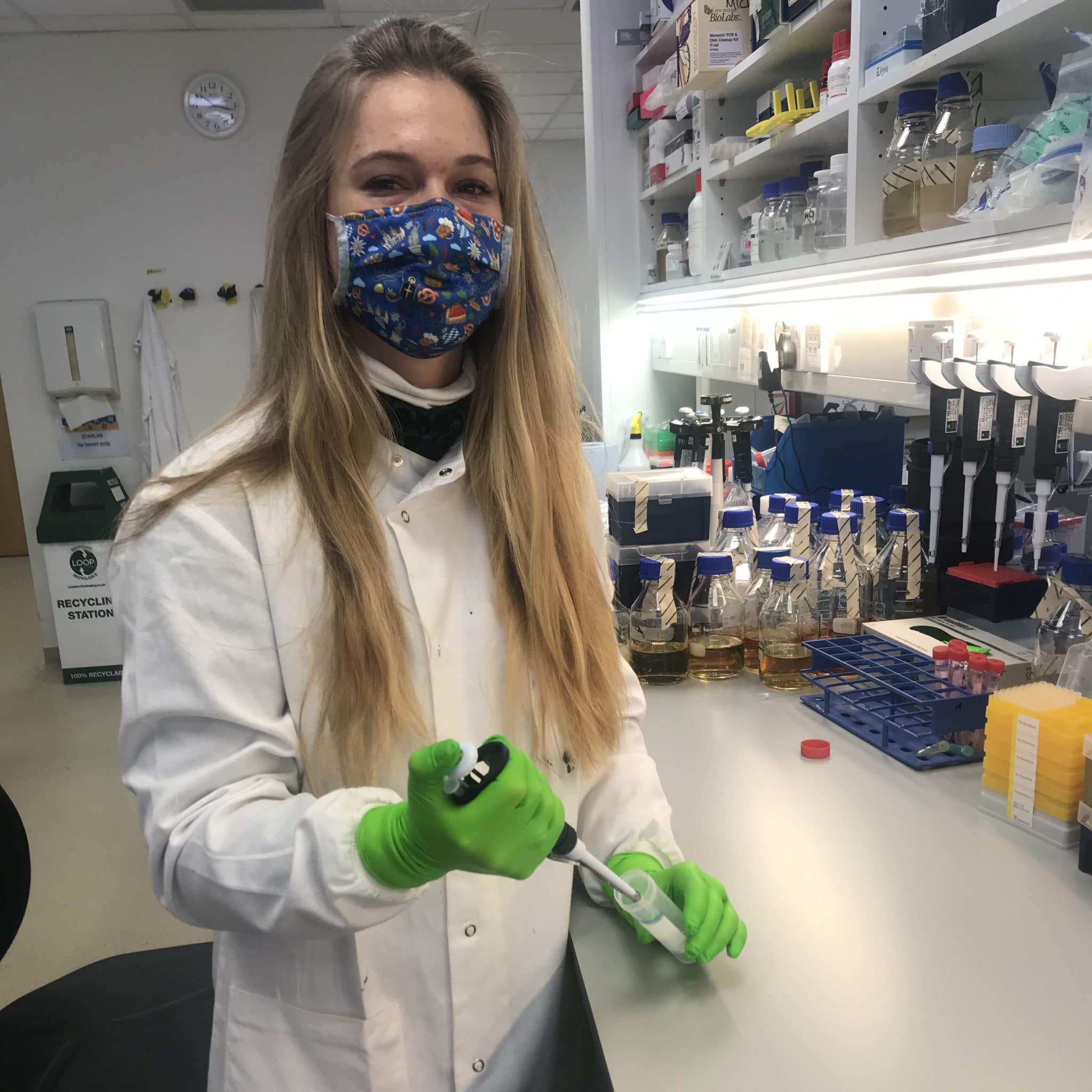Elena Piotter, a PhD student working in Robert MacLaren’s group in the Nuffield Laboratory of Ophthalmology at the University of Oxford, is currently researching DNA and RNA base editing tools aiming to correct pathogenic mutations in ABCA4. Her talk will focus on gene therapy, CRISPR technology including DNA and RNA base editing, and why this is relevant for Stargardt disease. She is excited to have this research funded by Retina UK and recently ran an UltraChallenge 25km to raise money and show support for Retina UK.
Stargardt disease is the most common form of inherited childhood blindness worldwide for which no current treatments exist. Mutations in the ABCA4 gene are responsible for ~95% of Stargardt cases. To date, a variety of gene supplementation approaches have been tested to create a therapy, with some reaching clinical trials. New technologies, such as CRISPR, provide an exciting frontier for addressing genetic disease by allowing targeted DNA or RNA editing of pathogenic mutations. ABCA4 has ~1200 known pathogenic mutations, of which ~63% are potentially amenable to this editing technology!

